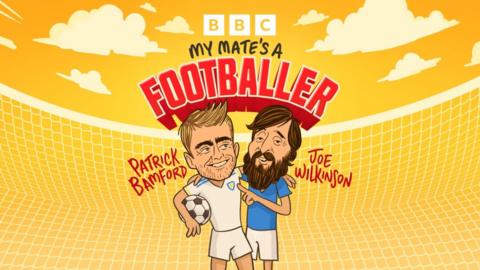B B C H o m e p a g e ● S k i p t o c o n t e n t ● A c c e s s i b i l i t y H e l p ● Y o u r a c c o u n t ● H o m e ● N e w s ● S p o r t ● B u s i n e s s ● I n n o v a t i o n ● C u l t u r e ● T r a v e l ● S e a r c h B B C ● ● ● ● ● ● ● ● ● ● C l o s e m e n u B B C N e w s M e n u ● H o m e ● I s r a e l - G a z a w a r ● W a r i n U k r a i n e ● I n d i a E l e c t i o n 2 0 2 4 ● C l i m a t e ● V i d e o ● W o r l d ● A s i a ● UK ● B u s i n e s s M o r e ● T e c h ● S c i e n c e ● E n t e r t a i n m e n t & A r t s ● H e a l t h ● W o r l d N e w s T V ● I n P i c t u r e s ● B B C V e r i f y ● N e w s b e a t T i m e l i n e : C a m p a i g n s f o r a E u r o p e a n U n i o n r e f e r e n d u m P u b l i s h e d 2 1 M a y 2 0 1 5 S h a r e c l o s e p a n e l S h a r e p a g e C o p y l i n k A b o u t s h a r i n g T h e C o n s e r v a t i v e s s a y t h e y w i l l h o l d a r e f e r e n d u m o n t h e U K ' s m e m b e r s h i p o f t h e E u r o p e a n U n i o n b y t h e e n d o f 2 0 1 7 . I t i s t h e l a t e s t s t e p i n t h e l o n g h i s t o r y o f c a m p a i g n i n g f o r s u c h a v o t e . 1 9 7 0 s : 1 J a n u a r y 1 9 7 3 : T h e U K j o i n s t h e E u r o p e a n E c o n o m i c C o m m u n i t y ( E E C ) . N e g o t i a t i o n s w e r e c o n d u c t e d b y T o r y P r i m e M i n i s t e r E d w a r d H e a t h 1 9 7 4 : L a b o u r , u n d e r l e a d e r H a r o l d W i l s o n , p r o m i s e s a r e f e r e n d u m o n w h e t h e r t o r e m a i n i n t h e E E C i n t h e p a r t y ' s e l e c t i o n m a n i f e s t o 6 J u n e 1 9 7 5 : T h e p u b l i c e n d o r s e t h e U K ' s c o n t i n u e d m e m b e r s h i p o f t h e E E C , w i t h 6 7 % o f p e o p l e v o t i n g t o s t a y i n a t a r e f e r e n d u m 1 9 8 0 s : I m a g e s o u r c e , AP 1 9 8 3 : I n t h e i r e l e c t i o n m a n i f e s t o , L a b o u r , u n d e r l e a d e r M i c h a e l F o o t , p l e d g e t o b e g i n n e g o t i a t i o n s t o w i t h d r a w f r o m t h e E U " w i t h i n t h e l i f e t i m e " o f t h e f o l l o w i n g P a r l i a m e n t . L a b o u r l o s e t h e e l e c t i o n 1 9 8 9 : M a r g a r e t T h a t c h e r s i g n a l s t h e U K w i l l j o i n t h e E u r o p e a n E x c h a n g e R a t e M e c h a n i s m . S h e r e s i g n s 1 8 m o n t h s l a t e r a m i d i n t e r n a l d i v i s i o n s o v e r E u r o p e a n d o t h e r i s s u e s 1 9 9 0 s : I m a g e s o u r c e , PA 1 9 9 2 : E u r o p e a n l e a d e r s s i g n t h e M a a s t r i c h t T r e a t y , c r e a t i n g t h e m o d e r n d a y E u r o p e a n U n i o n . T h e U K e x i t s t h e E u r o p e a n E x c h a n g e R a t e M e c h a n i s m 1 9 9 3 : T o r y r e b e l s f a i l i n c a m p a i g n f o r a r e f e r e n d u m o n t h e M a a s t r i c h t T r e a t y . P a r l i a m e n t a p p r o v e s t h e t r e a t y b u t o n l y a f t e r J o h n M a j o r i s f o r c e d t o c a l l a v o t e o f c o n f i d e n c e i n h i s g o v e r n m e n t . D e n m a r k a n d F r a n c e a r e a m o n g c o u n t r i e s t o h o l d a r e f e r e n d u m 1 9 9 6 : B u s i n e s s m a n S i r J a m e s G o l d s m i t h l a u n c h e s t h e R e f e r e n d u m P a r t y t o c a m p a i g n f o r a p u b l i c v o t e o n t h e U K ' s m e m b e r s h i p o f t h e E U . I t s e c u r e s 3 % o f t h e v o t e a t t h e 1 9 9 7 g e n e r a l e l e c t i o n 1 9 9 7 : I n t h e i r e l e c t i o n m a n i f e s t o , L a b o u r s a y a y e s v o t e i n a r e f e r e n d u m i s a " p r e - c o n d i t i o n " f o r B r i t a i n f o r j o i n i n g t h e s i n g l e c u r r e n c y . 1 9 9 9 : T h e e u r o i s l a u n c h e d . T h e U K o p t s o u t 2 0 0 0 s : I m a g e s o u r c e , G e t t y I m a g e s I m a g e c a p t i o n , T h e U K r a t i f i e d t h e L i s b o n T r e a t y w i t h o u t a r e f e r e n d u m 2 0 0 4 : L a b o u r P r i m e M i n i s t e r T o n y B l a i r s a y s a r e f e r e n d u m w i l l b e h e l d o n r a t i f i c a t i o n o f t h e E u r o p e a n C o n s t i t u t i o n T r e a t y b u t d o e s n o t n a m e a d a t e f o r t h e p o l l 2 0 0 5 : L a b o u r , t h e C o n s e r v a t i v e s a n d t h e L i b e r a l D e m o c r a t s a l l p r o m i s e a r e f e r e n d u m o n w h e t h e r t o r a t i f y t h e E U C o n s t i t u t i o n i n t h e i r g e n e r a l e l e c t i o n m a n i f e s t o s . F r a n c e a n d t h e N e t h e r l a n d s r e j e c t t h e p r o p o s a l i n r e f e r e n d u m s 2 0 0 6 : T h e c r o s s - p a r t y B e t t e r O f f O u t G r o u p , s e e k i n g t h e U K ' s w i t h d r a w a l f r o m t h e E U , i s l a u n c h e d 2 0 0 7 : T h e E u r o p e a n C o m m i s s i o n p r o p o s e s a r e p l a c e m e n t t r e a t y , w h i c h c o m e s t o b e k n o w n a s t h e L i s b o n T r e a t y . T h e L a b o u r g o v e r n m e n t s a y s i t i s a d i f f e r e n t d o c u m e n t , a m e n d i n g n o t o v e r w r i t i n g e x i s t i n g t r e a t i e s , a n d a r e f e r e n d u m i s n o t n e e d e d . C o n s e r v a t i v e l e a d e r D a v i d C a m e r o n g i v e s a " c a s t - i r o n g u a r a n t e e " t o h o l d a r e f e r e n d u m o n a n y t r e a t y e m e r g i n g f r o m t h e L i s b o n p r o c e s s i f h e b e c o m e s P M 2 0 0 8 : L i b D e m l e a d e r N i c k C l e g g c a l l s f o r a n " i n - o u t " r e f e r e n d u m o n U K m e m b e r s h i p o f t h e E U . M P s r e j e c t a C o n s e r v a t i v e c a l l f o r a r e f e r e n d u m o n w h e t h e r t h e L i s b o n T r e a t y s h o u l d b e r a t i f i e d b y 6 3 v o t e s . 1 5 L a b o u r M P s a n d 1 4 L i b D e m s r e b e l a g a i n s t t h e i r p a r t i e s 2 0 0 8 : T h e U K r a t i f i e s t h e L i s b o n T r e a t y . T h e H i g h C o u r t r e j e c t s c a l l s f o r a j u d i c i a l r e v i e w o f t h e d e c i s i o n b y T o r y M P B i l l C a s h a n d b u s i n e s s m a n S t u a r t W h e e l e r . T h e y c l a i m r a t i f i c a t i o n w i t h o u t a r e f e r e n d u m w a s i l l e g a l 2 0 0 9 : D a v i d C a m e r o n a d m i t s h e w i l l n o t b e a b l e t o f u l f i l h i s p l e d g e t o h o l d a r e f e r e n d u m o n t h e L i s b o n T r e a t y b e c a u s e i t h a s b e e n r a t i f i e d b y a l l E U m e m b e r s t a t e s . B u t h e s a y s , i f e l e c t e d , n o f u t u r e s u b s t a n t i a l t r a n s f e r o f p o w e r s w i l l t a k e p l a c e w i t h o u t t h e a p p r o v a l o f t h e B r i t i s h p e o p l e . T h e U K I n d e p e n d e n c e P a r t y , w h i c h p u t s a n i n / o u t r e f e r e n d u m o n U K m e m b e r s h i p o f t h e E U a t t h e h e a r t o f i t s p r o g r a m m e , c o m e s s e c o n d i n t h e E u r o p e a n P a r l i a m e n t e l e c t i o n s , w i t h 1 6 % o f v o t e s . 2 0 1 0 s : A p r i l 2 0 1 0 : I n t h e i r e l e c t i o n m a n i f e s t o , t h e L i b D e m s p l e d g e t o h o l d a n " i n - o u t " r e f e r e n d u m t h e n e x t t i m e t h e r e i s a " f u n d a m e n t a l c h a n g e " i n t h e E U ' s t r e a t y a r r a n g e m e n t s M a y 2 0 1 0 : A n e w g e n e r a t i o n o f m o r e e u r o s c e p t i c C o n s e r v a t i v e M P s i s e l e c t e d t o P a r l i a m e n t F e b r u a r y 2 0 1 1 : T o r y M P P e t e r B o n e f a i l s i n a b i d t o s e c u r e a n " i n - o u t " r e f e r e n d u m b y a m e n d i n g g o v e r n m e n t l e g i s l a t i o n p r o p o s i n g a r e f e r e n d u m i n f u t u r e i f b i g c h a n g e s a r e m a d e t o E U t r e a t i e s . M r B o n e s a i d a s e c o n d r e f e r e n d u m o n U K m e m b e r s h i p s h o u l d b e t r i g g e r e d i f t h e p u b l i c i n i t i a l l y v e t o e d p l a n s t o h a n d m o r e p o w e r s t o B r u s s e l s b u t h i s p l a n t o c h a n g e t h e E u r o p e B i l l i s r e j e c t e d M a r c h 2 0 1 1 : P e o p l e ' s P l e d g e c a m p a i g n f o r a r e f e r e n d u m i s l a u n c h e d . 8 S e p t e m b e r 2 0 1 1 : A p e t i t i o n c a l l i n g f o r a r e f e r e n d u m o n E U m e m b e r s h i p , s i g n e d b y 1 0 0 , 0 0 0 p e o p l e , i s h a n d e d i n t o D o w n i n g S t r e e t 1 2 S e p t e m b e r 2 0 1 1 : M o r e t h a n 1 0 0 T o r y M P s m e e t t o d i s c u s s h o w t o r e c o n f i g u r e t h e U K ' s r e l a t i o n s h i p w i t h E u r o p e i n w a k e o f t h e e u r o z o n e f i n a n c i a l c r i s i s 1 7 O c t o b e r 2 0 1 1 : B a c k b e n c h b u s i n e s s c o m m i t t e e a g r e e s t o h o l d a C o m m o n s d e b a t e o n E U m e m b e r s h i p f o l l o w i n g a r e q u e s t b y T o r y M P D a v i d N u t t a l l . 2 4 O c t o b e r 2 0 1 1 : T h e m o t i o n c a l l i n g f o r a r e f e r e n d u m o n E U m e m b e r s h i p i s d e f e a t e d i n t h e C o m m o n s b y 4 8 3 v o t e s t o 1 1 1 . H o w e v e r , 8 1 T o r y M P s s u p p o r t i t a n d a f u r t h e r t w o a c t i v e l y a b s t a i n - m a k i n g i t b y f a r t h e l a r g e s t e v e r C o n s e r v a t i v e r e b e l l i o n o v e r E u r o p e . I n a d d i t i o n , 1 9 L a b o u r M P s a n d o n e L i b e r a l D e m o c r a t d e f y t h e i r p a r t y l e a d e r s h i p i n u r g i n g a r e f e r e n d u m . 2 2 J a n u a r y 2 0 1 3 : I n a l o n g a w a i t e d s p e e c h P r i m e M i n i s t e r D a v i d C a m e r o n s a y s t h a t i f t h e C o n s e r v a t i v e s w i n t h e n e x t e l e c t i o n t h e y w o u l d s e e k t o r e n e g o t i a t e t h e U K ' s r e l a t i o n s h i p w i t h t h e E U a n d t h e n g i v e t h e B r i t i s h p e o p l e t h e " s i m p l e c h o i c e " i n 2 0 1 7 b e t w e e n s t a y i n g i n t h e E U u n d e r t h o s e t e r m s o r l e a v i n g t h e E U . H i s s p e e c h c o m e s a g a i n s t a b a c k g r o u n d o f p o l l s s u g g e s t i n g U K I n d e p e n d e n c e P a r t y s u p p o r t a t 1 0 % . 5 J u l y 2 0 1 3 : T h e C o n s e r v a t i v e b a c k b e n c h e r J a m e s W h a r t o n b r i n g s f o r w a r d a b i l l t o e n s h r i n e i n l a w h i s p a r t y ' s p l e d g e t o h o l d a n i n / o u t r e f e r e n d u m i n 2 0 1 7 . I t p a s s e s i t s s e c o n d r e a d i n g b y 3 0 4 v o t e s t o 0 . I t g o e s o n t o c l e a r a l l i t s C o m m o n s h u r d l e s b e f o r e f a l l i n g i n t h e H o u s e o f L o r d s . 3 1 J a n u a r y 2 0 1 4 : D a v i d C a m e r o n s a y s t h e C o n s e r v a t i v e s w i l l b r i n g b a c k t h e P r i v a t e M e m b e r ' s B i l l a n d s a i d h e w a s p r e p a r e d t o u s e t h e P a r l i a m e n t A c t t o f o r c e i t i n t o l a w , r a t h e r t h a n s e e i n g t h e L o r d s b l o c k i t a g a i n . 5 M a r c h 2 0 1 4 : I t i s a n n o u n c e d t h a t t h e B B C i s t o h o s t a T V d e b a t e o n B r i t a i n ' s f u t u r e i n E u r o p e b e t w e e n U K I n d e p e n d e n c e P a r t y l e a d e r N i g e l F a r a g e - w h o s e p a r t y i s r i d i n g h i g h i n p o l l s a h e a d o f M a y ' s E u r o p e a n e l e c t i o n a n d w h o w a n t s a n i m m e d i a t e i n / o u t r e f e r e n d u m - a n d N i c k C l e g g , w h o s e L i b D e m s s a y t h e y a r e t h e o n l y " p a r t y o f i n " w h e n i t c o m e s t o t h e E U . 1 2 M a r c h 2 0 1 4 : E d M i l i b a n d w r i t e s a n a r t i c l e f o r t h e F i n a n c i a l T i m e s i n w h i c h h e s a y s t h a t L a b o u r w i l l n o t h o l d a r e f e r e n d u m o n t h e U K ' s m e m b e r s h i p o f t h e E u r o p e a n U n i o n u n l e s s t h e r e a r e p r o p o s a l s t o t r a n s f e r f u r t h e r p o w e r s f r o m L o n d o n t o B r u s s e l s . 2 6 O c t o b e r 2 0 1 4 : C o n s e r v a t i v e b a c k b e n c h e r B o b N e i l l b r i n g s b a c k t h e E U R e f e r e n d u m B i l l a s a P r i v a t e M e m b e r ' s B i l l . I t p a s s e d i t s f i r s t P a r l i a m e n t a r y h u r d l e w i t h n o o p p o s i t i o n . 2 8 O c t o b e r 2 0 1 4 : T h e C o n s e r v a t i v e s a c c u s e t h e i r c o a l i t i o n p a r t n e r s t h e L i b D e m s o f b l o c k i n g t h e E U R e f e r e n d u m B i l l a f t e r t h e t w o p a r t i e s f a i l t o r e a c h a n a g r e e m e n t w h i c h w o u l d h a v e a l l o w e d t h e b i l l t o g e t t h e n e c e s s a r y p a r l i a m e n t a r y t i m e t o b e c o m e l a w . 8 M a y 2 0 1 5 : T h e C o n s e r v a t i v e s w i n a m a j o r i t y i n t h e H o u s e o f C o m m o n s i n t h e g e n e r a l e l e c t i o n a n d i m m e d i a t e l y p l e d g e t o m a k e g o o d o n t h e i r e l e c t i o n m a n i f e s t o p r o m i s e t o h o l d a r e f e r e n d u m o n t h e U K ' s m e m b e r s h i p o f t h e E U b y t h e e n d o f 2 0 1 7 2 7 M a y 2 0 1 5 : T h e Q u e e n ' s S p e e c h i s e x p e c t e d t o i n c l u d e d e t a i l s o f t h e p r o p o s e d E U r e f e r e n d u m b i l l - w i t h m o r e d e t a i l o v e r t h e l i k e l y d a t e i t w i l l b e h e l d . . . M o r e o n t h i s s t o r y C a m e r o n d e f e a t s r e b e l s o n E U v o t e P u b l i s h e d 2 5 O c t o b e r 2 0 1 1 M P s t o l d t o o p p o s e E U r e f e r e n d u m P u b l i s h e d 2 1 O c t o b e r 2 0 1 1 M P s s u p p o r t i n g E U r e f e r e n d u m d e b a t e P u b l i s h e d 2 4 O c t o b e r 2 0 1 1 T o p S t o r i e s L i v e . R a c h e l R e e v e s i s f i r s t f e m a l e c h a n c e l l o r a n d A n g e l a R a y n e r m a d e d e p u t y P M W h o ' s i n K e i r S t a r m e r ' s n e w c a b i n e t ? P u b l i s h e d 4 6 m i n u t e s a g o S t a r m e r v o w s t o s e r v e w h o l e U K a s n e w L a b o u r P M P u b l i s h e d 3 h o u r s a g o F e a t u r e s I n p i c t u r e s : H o w L a b o u r ' s l a n d s l i d e u n f o l d e d o v e r n i g h t O n e P M o u t a n d a n o t h e r i n . . . t h e d a y i n 6 0 s e c o n d s W h a t h a p p e n s n e x t : A s i m p l e g u i d e t o L a b o u r ' s e l e c t i o n w i n T h e b i g w i n n e r s a n d l o s e r s o n e l e c t i o n n i g h t L a b o u r m a n i f e s t o : W h a t t h e y p l a n t o d o i n g o v e r n m e n t A m a z o n a t 3 0 : W h a t n e x t f o r ' T h e E v e r y t h i n g C o m p a n y ' ? W e e k l y q u i z : H o w d i d D u a L i p a s t a r t h e r G l a s t o n b u r y p a r t y ? A n d y M u r r a y l o o k s b a c k o n h i s c a r e e r w i t h S u e B a r k e r U S c i t i e s c a n n o w p u n i s h h o m e l e s s n e s s . W i l l i t h e l p o r h u r t a c r i s i s ? E l s e w h e r e o n t h e B B C A s t y l i s h s p y t h r i l l e r s t a r r i n g T o m H u g h e s a n d B r i a n C o x A t t h e h e i g h t o f t h e C o l d W a r , f r i e n d s c o u l d b e t r a i t o r s a n d n o o n e i s w h o t h e y s e e m T h e f a s c i n a t i n g , h i d d e n h i s t o r y o f h a t s H o w d i f f e r e n t w o u l d t h e w o r l d b e w i t h o u t t h e m ? T h e p a t h t o l o v e i s n ' t a l w a y s s t r a i g h t D a n n i i M i n o g u e i s b a c k t o p l a y C u p i d a n d t h i s t i m e i t ’ s f o r t h e g i r l s C a n f o o t b a l l e r s e n j o y t h e E u r o s a s f a n s ? P a t r i c k a n d J o e d i s c u s s w h e t h e r p l a y e r s c a n , o r w h e t h e r i t ' s j u s t a b u s m a n ’ s h o l i d a y M o s t R e a d 1 R e e v e s : ' T h e r e ' s n o t a h u g e a m o u n t o f m o n e y ' 2 G e n e r a l e l e c t i o n 2 0 2 4 i n m a p s a n d c h a r t s 3 S t a r m e r v o w s t o s e r v e w h o l e U K a s n e w L a b o u r P M 4 R i s h i S u n a k a p o l o g i s e s a f t e r h i s t o r i c T o r y d e f e a t 5 B i g g e s t - e v e r g a p b e t w e e n n u m b e r o f v o t e s a n d M P s h i t s R e f o r m a n d G r e e n s 6 R e f o r m U K w i n s g i v e N i g e l F a r a g e n e w p l a t f o r m a t h e a r t o f p o l i t i c s 7 S N P l o s e s ' d a m a g i n g ' 3 8 s e a t s s o f a r a s f i n a l r e s u l t d e l a y e d 8 M o v i n g i n t o D o w n i n g S t r e e t : l i f e b e h i n d t h e i c o n i c b l a c k d o o r 9 K e i r S t a r m e r : F r o m i n d i e k i d t o p r i m e m i n i s t e r 10 T h e b i g w i n n e r s a n d l o s e r s o n e l e c t i o n n i g h t B B C N e w s S e r v i c e s ● O n y o u r m o b i l e ● O n s m a r t s p e a k e r s ● G e t n e w s a l e r t s ● C o n t a c t B B C N e w s ● H o m e ● N e w s ● S p o r t ● B u s i n e s s ● I n n o v a t i o n ● C u l t u r e ● T r a v e l ● E a r t h ● V i d e o ● L i v e ● T e r m s o f U s e ● A b o u t t h e B B C ● P r i v a c y P o l i c y ● C o o k i e s ● A c c e s s i b i l i t y H e l p ● P a r e n t a l G u i d a n c e ● C o n t a c t t h e B B C ● G e t P e r s o n a l i s e d N e w s l e t t e r s ● W h y y o u c a n t r u s t t h e B B C ● A d v e r t i s e w i t h u s © 2 0 2 4 B B C . T h e B B C i s n o t r e s p o n s i b l e f o r t h e c o n t e n t o f e x t e r n a l s i t e s . R e a d a b o u t o u r a p p r o a c h t o e x t e r n a l l i n k i n g . 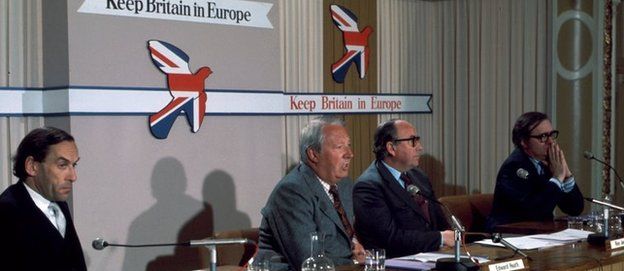 1 January 1973: The UK joins the European Economic Community (EEC). Negotiations were conducted by Tory Prime Minister Edward Heath
1974: Labour, under leader Harold Wilson, promises a referendum on whether to remain in the EEC in the party's election manifesto
6 June 1975: The public endorse the UK's continued membership of the EEC, with 67% of people voting to stay in at a referendum
1 January 1973: The UK joins the European Economic Community (EEC). Negotiations were conducted by Tory Prime Minister Edward Heath
1974: Labour, under leader Harold Wilson, promises a referendum on whether to remain in the EEC in the party's election manifesto
6 June 1975: The public endorse the UK's continued membership of the EEC, with 67% of people voting to stay in at a referendum
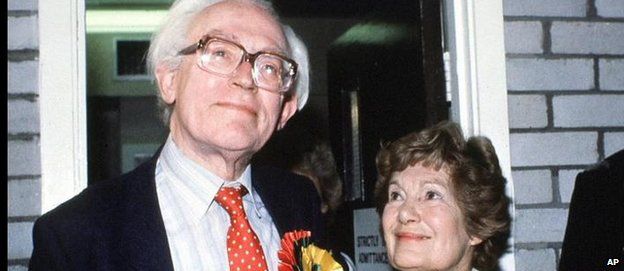 Image source, AP
1983: In their election manifesto, Labour, under leader Michael Foot, pledge to begin negotiations to withdraw from the EU "within the lifetime" of the following Parliament. Labour lose the election
1989: Margaret Thatcher signals the UK will join the European Exchange Rate Mechanism. She resigns 18 months later amid internal divisions over Europe and other issues
Image source, AP
1983: In their election manifesto, Labour, under leader Michael Foot, pledge to begin negotiations to withdraw from the EU "within the lifetime" of the following Parliament. Labour lose the election
1989: Margaret Thatcher signals the UK will join the European Exchange Rate Mechanism. She resigns 18 months later amid internal divisions over Europe and other issues
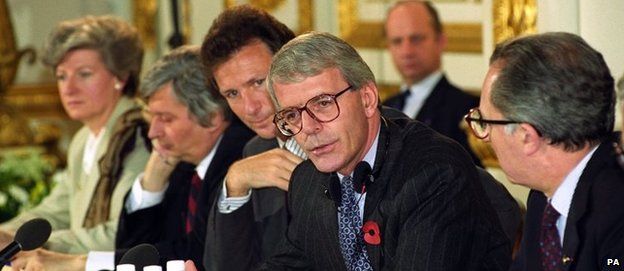 Image source, PA
1992: European leaders sign the Maastricht Treaty, creating the modern day European Union. The UK exits the European Exchange Rate Mechanism
1993: Tory rebels fail in campaign for a referendum on the Maastricht Treaty. Parliament approves the treaty but only after John Major is forced to call a vote of confidence in his government. Denmark and France are among countries to hold a referendum
1996: Businessman Sir James Goldsmith launches the Referendum Party to campaign for a public vote on the UK's membership of the EU. It secures 3% of the vote at the 1997 general election
1997: In their election manifesto, Labour say a yes vote in a referendum is a "pre-condition" for Britain for joining the single currency.
1999: The euro is launched. The UK opts out
Image source, PA
1992: European leaders sign the Maastricht Treaty, creating the modern day European Union. The UK exits the European Exchange Rate Mechanism
1993: Tory rebels fail in campaign for a referendum on the Maastricht Treaty. Parliament approves the treaty but only after John Major is forced to call a vote of confidence in his government. Denmark and France are among countries to hold a referendum
1996: Businessman Sir James Goldsmith launches the Referendum Party to campaign for a public vote on the UK's membership of the EU. It secures 3% of the vote at the 1997 general election
1997: In their election manifesto, Labour say a yes vote in a referendum is a "pre-condition" for Britain for joining the single currency.
1999: The euro is launched. The UK opts out
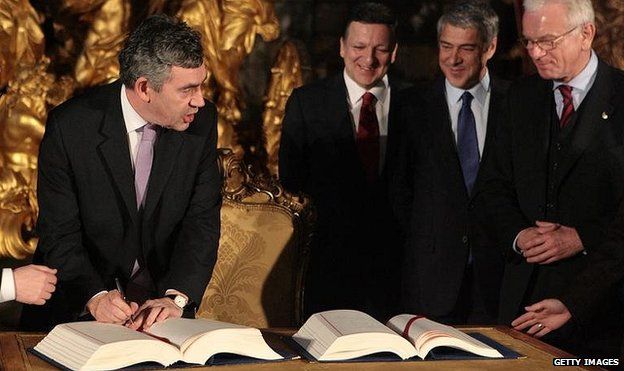 Image source, Getty Images
Image source, Getty Images
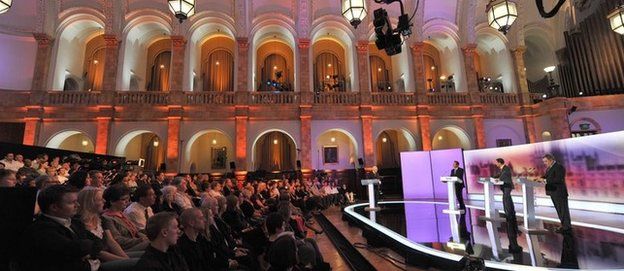 April 2010: In their election manifesto, the Lib Dems pledge to hold an "in-out" referendum the next time there is a "fundamental change" in the EU's treaty arrangements
May 2010: A new generation of more eurosceptic Conservative MPs is elected to Parliament
February 2011: Tory MP Peter Bone fails in a bid to secure an "in-out" referendum by amending government legislation proposing a referendum in future if big changes are made to EU treaties. Mr Bone said a second referendum on UK membership should be triggered if the public initially vetoed plans to hand more powers to Brussels but his plan to change the Europe Bill is rejected
March 2011: People's Pledge campaign for a referendum is launched.
8 September 2011: A petition calling for a referendum on EU membership, signed by 100,000 people, is handed into Downing Street
12 September 2011: More than 100 Tory MPs meet to discuss how to reconfigure the UK's relationship with Europe in wake of the eurozone financial crisis
17 October 2011: Backbench business committee agrees to hold a Commons debate on EU membership following a request by Tory MP David Nuttall.
24 October 2011: The motion calling for a referendum on EU membership is defeated in the Commons by 483 votes to 111. However, 81 Tory MPs support it and a further two actively abstain - making it by far the largest ever Conservative rebellion over Europe. In addition, 19 Labour MPs and one Liberal Democrat defy their party leadership in urging a referendum.
22 January 2013: In a long awaited speech Prime Minister David Cameron says that if the Conservatives win the next election they would seek to renegotiate the UK's relationship with the EU and then give the British people the "simple choice" in 2017 between staying in the EU under those terms or leaving the EU. His speech comes against a background of polls suggesting UK Independence Party support at 10%.
5 July 2013: The Conservative backbencher James Wharton brings forward a bill to enshrine in law his party's pledge to hold an in/out referendum in 2017. It passes its second reading by 304 votes to 0. It goes on to clear all its Commons hurdles before falling in the House of Lords.
31 January 2014: David Cameron says the Conservatives will bring back the Private Member's Bill and said he was prepared to use the Parliament Act to force it into law, rather than seeing the Lords block it again.
5 March 2014: It is announced that the BBC is to host a TV debate on Britain's future in Europe between UK Independence Party leader Nigel Farage - whose party is riding high in polls ahead of May's European election and who wants an immediate in/out referendum - and Nick Clegg, whose Lib Dems say they are the only "party of in" when it comes to the EU.
12 March 2014: Ed Miliband writes an article for the Financial Times in which he says that Labour will not hold a referendum on the UK's membership of the European Union unless there are proposals to transfer further powers from London to Brussels.
26 October 2014: Conservative backbencher Bob Neill brings back the EU Referendum Bill as a Private Member's Bill. It passed its first Parliamentary hurdle with no opposition.
28 October 2014: The Conservatives accuse their coalition partners the Lib Dems of blocking the EU Referendum Bill after the two parties fail to reach an agreement which would have allowed the bill to get the necessary parliamentary time to become law.
8 May 2015: The Conservatives win a majority in the House of Commons in the general election and immediately pledge to make good on their election manifesto promise to hold a referendum on the UK's membership of the EU by the end of 2017
27 May 2015: The Queen's Speech is expected to include details of the proposed EU referendum bill - with more detail over the likely date it will be held...
April 2010: In their election manifesto, the Lib Dems pledge to hold an "in-out" referendum the next time there is a "fundamental change" in the EU's treaty arrangements
May 2010: A new generation of more eurosceptic Conservative MPs is elected to Parliament
February 2011: Tory MP Peter Bone fails in a bid to secure an "in-out" referendum by amending government legislation proposing a referendum in future if big changes are made to EU treaties. Mr Bone said a second referendum on UK membership should be triggered if the public initially vetoed plans to hand more powers to Brussels but his plan to change the Europe Bill is rejected
March 2011: People's Pledge campaign for a referendum is launched.
8 September 2011: A petition calling for a referendum on EU membership, signed by 100,000 people, is handed into Downing Street
12 September 2011: More than 100 Tory MPs meet to discuss how to reconfigure the UK's relationship with Europe in wake of the eurozone financial crisis
17 October 2011: Backbench business committee agrees to hold a Commons debate on EU membership following a request by Tory MP David Nuttall.
24 October 2011: The motion calling for a referendum on EU membership is defeated in the Commons by 483 votes to 111. However, 81 Tory MPs support it and a further two actively abstain - making it by far the largest ever Conservative rebellion over Europe. In addition, 19 Labour MPs and one Liberal Democrat defy their party leadership in urging a referendum.
22 January 2013: In a long awaited speech Prime Minister David Cameron says that if the Conservatives win the next election they would seek to renegotiate the UK's relationship with the EU and then give the British people the "simple choice" in 2017 between staying in the EU under those terms or leaving the EU. His speech comes against a background of polls suggesting UK Independence Party support at 10%.
5 July 2013: The Conservative backbencher James Wharton brings forward a bill to enshrine in law his party's pledge to hold an in/out referendum in 2017. It passes its second reading by 304 votes to 0. It goes on to clear all its Commons hurdles before falling in the House of Lords.
31 January 2014: David Cameron says the Conservatives will bring back the Private Member's Bill and said he was prepared to use the Parliament Act to force it into law, rather than seeing the Lords block it again.
5 March 2014: It is announced that the BBC is to host a TV debate on Britain's future in Europe between UK Independence Party leader Nigel Farage - whose party is riding high in polls ahead of May's European election and who wants an immediate in/out referendum - and Nick Clegg, whose Lib Dems say they are the only "party of in" when it comes to the EU.
12 March 2014: Ed Miliband writes an article for the Financial Times in which he says that Labour will not hold a referendum on the UK's membership of the European Union unless there are proposals to transfer further powers from London to Brussels.
26 October 2014: Conservative backbencher Bob Neill brings back the EU Referendum Bill as a Private Member's Bill. It passed its first Parliamentary hurdle with no opposition.
28 October 2014: The Conservatives accuse their coalition partners the Lib Dems of blocking the EU Referendum Bill after the two parties fail to reach an agreement which would have allowed the bill to get the necessary parliamentary time to become law.
8 May 2015: The Conservatives win a majority in the House of Commons in the general election and immediately pledge to make good on their election manifesto promise to hold a referendum on the UK's membership of the EU by the end of 2017
27 May 2015: The Queen's Speech is expected to include details of the proposed EU referendum bill - with more detail over the likely date it will be held...
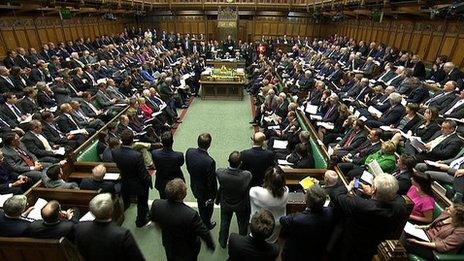 MPs told to oppose EU referendum
Published
21 October 2011
MPs told to oppose EU referendum
Published
21 October 2011
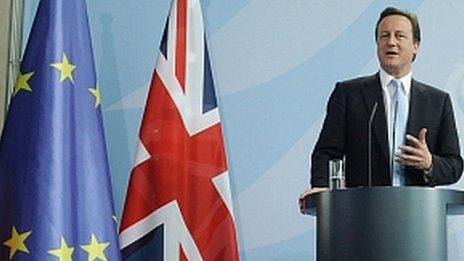 MPs supporting EU referendum debate
Published
24 October 2011
MPs supporting EU referendum debate
Published
24 October 2011
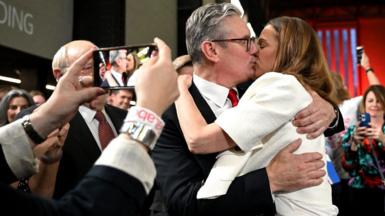 One PM out and another in... the day in 60 seconds
One PM out and another in... the day in 60 seconds
 What happens next: A simple guide to Labour's election win
What happens next: A simple guide to Labour's election win
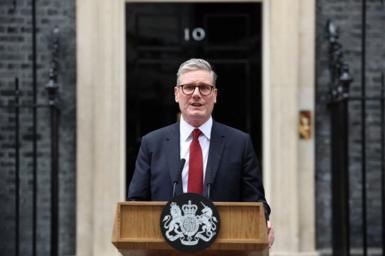 The big winners and losers on election night
The big winners and losers on election night
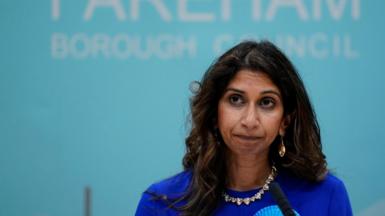 Labour manifesto: What they plan to do in government
Labour manifesto: What they plan to do in government
 Amazon at 30: What next for 'The Everything Company'?
Amazon at 30: What next for 'The Everything Company'?
 Weekly quiz: How did Dua Lipa start her Glastonbury party?
Weekly quiz: How did Dua Lipa start her Glastonbury party?
 Andy Murray looks back on his career with Sue Barker
Andy Murray looks back on his career with Sue Barker
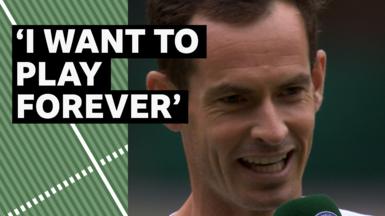 US cities can now punish homelessness. Will it help or hurt a crisis?
US cities can now punish homelessness. Will it help or hurt a crisis?
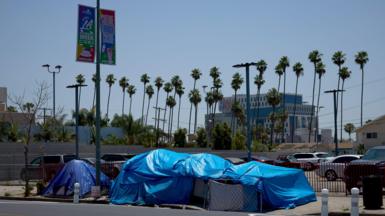
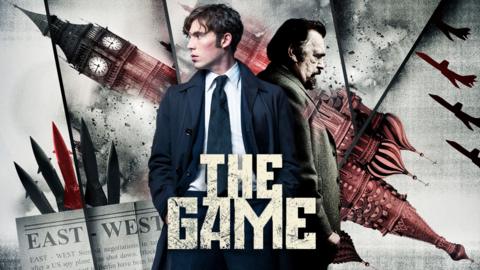 The fascinating, hidden history of hats
How different would the world be without them?
The fascinating, hidden history of hats
How different would the world be without them?
 The path to love isn't always straight
Dannii Minogue is back to play Cupid and this time it’s for the girls
The path to love isn't always straight
Dannii Minogue is back to play Cupid and this time it’s for the girls
 Can footballers enjoy the Euros as fans?
Patrick and Joe discuss whether players can, or whether it's just a busman’s holiday
Can footballers enjoy the Euros as fans?
Patrick and Joe discuss whether players can, or whether it's just a busman’s holiday
